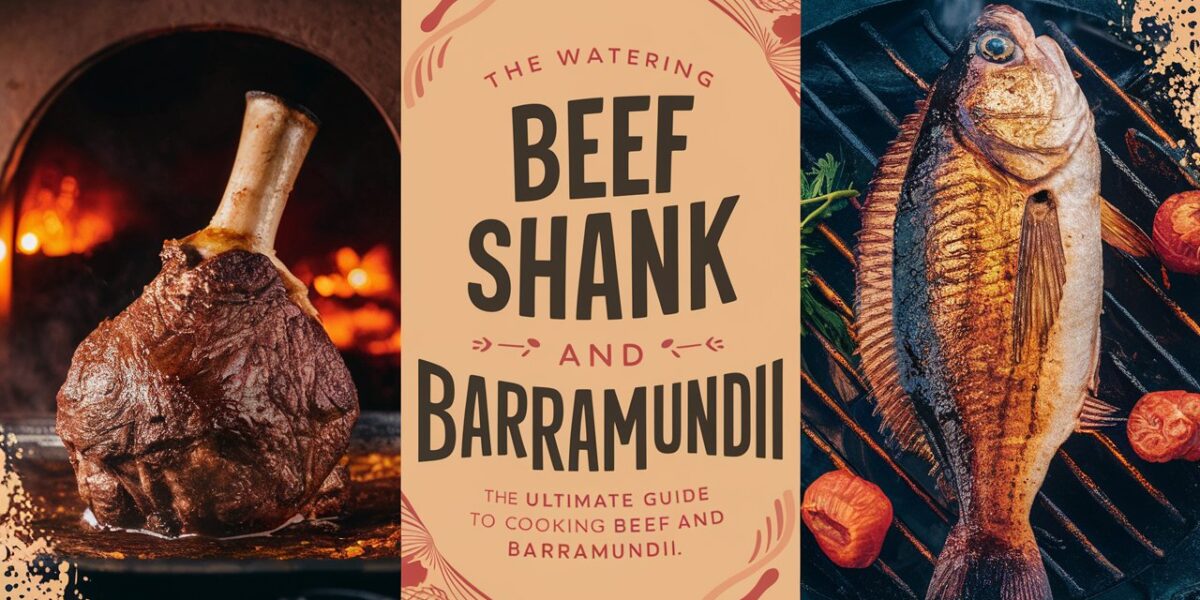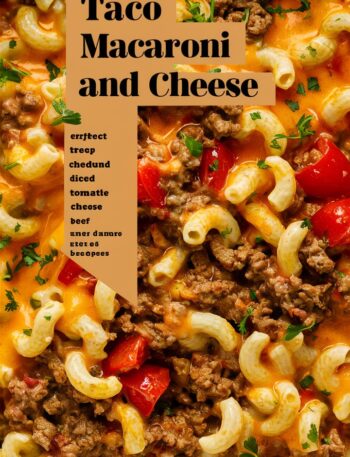Posted on: July 7, 2025
Categories: Easy Dinner, Fall Recipes, Healthy Cooking
Introduction: Uniting the Land and Sea on Your Plate

In the evolving world of culinary creativity and conscious eating, two unsung heroes have begun capturing the attention of chefs and home cooks alike: beef shank and barramundi. Though seemingly worlds apart—one hailing from pasture-fed cattle, the other from the clean waters of the Indo-Pacific—both offer robust flavors, health benefits, and incredible versatility in the kitchen. If you’re looking to elevate your meal planning with dishes that are rich in taste, nourishing to the body, and gentle on the planet, these ingredients deserve a front-row seat in your kitchen.
In this comprehensive guide, we’ll explore everything you need to know about beef shank and barramundi—from their culinary benefits and nutritional value to preparation techniques, serving ideas, and expert tips for perfect results every time. Whether you’re a meat lover, a seafood enthusiast, or someone navigating between both, this article is your one-stop resource to master two of the most flavorful and sustainable protein choices.
Part 1: Beef Shank — The Hidden Gem of the Butcher’s Counter
🥩 What is Beef Shank?
Beef shank comes from the leg portion of the cow, an area that does a lot of work. This results in meat that is dense with muscle fibers and connective tissue, particularly collagen. While this makes the raw cut tougher than tenderloin or ribeye, with slow and proper cooking, it transforms into melt-in-your-mouth goodness, offering deep, rich, beefy flavors.
Why It’s Underrated:
- Often overshadowed by pricier cuts
- Requires longer cooking time
- Less commonly featured on restaurant menus
Why It Deserves the Spotlight:
- Budget-friendly yet flavorful
- Ideal for slow-cooking and braising
- Marrow bones in the center provide natural richness
🧠 Nutritional Powerhouse
Beef shank isn’t just about taste—it’s packed with nutrients essential for health.
| Nutrient | Benefit |
|---|---|
| Protein | Muscle repair and satiety |
| Iron | Supports red blood cell production |
| Zinc | Boosts immune system |
| Collagen | Improves joint and skin health |
| B Vitamins | Vital for energy and brain function |
Part 2: Barramundi — The Sustainable Seafood with a Global Appeal

🐟 What is Barramundi?
Barramundi, also known as Asian sea bass, is a white-fleshed fish with a buttery texture and clean, mild flavor. It’s versatile enough to adapt to a wide range of cooking methods and flavor profiles, from simple lemon and herbs to robust curries and marinades.
Key Characteristics:
- Mild, non-fishy taste
- Flaky yet firm texture
- Adapts well to various cuisines
Sustainability Factor:
Barramundi is celebrated for its eco-friendly farming practices. It requires less feed, emits fewer waste byproducts, and can thrive in closed-loop systems that minimize environmental impact.
🧠 Nutritional Highlights
| Nutrient | Benefit |
|---|---|
| Omega-3 Fatty Acids (EPA/DHA) | Heart and brain health |
| Low Mercury Content | Safe for regular consumption |
| Vitamin D | Supports immune and bone health |
| Potassium | Regulates blood pressure |
| High Protein, Low Calorie | Ideal for weight management |
Part 3: Preparing and Cooking Beef Shank
🔪 How to Select the Best Beef Shank
- Look for deep red color with visible marbling
- The central bone-in cut should be intact with visible marrow
- Choose uniformly sized pieces for even cooking
- Grass-fed or organic sources offer better flavor and ethical sourcing
🧂 Preparation Tips Before Cooking
- Pat meat dry for proper searing
- Trim excess fat, leaving a thin layer for flavor
- Score the surface for better marinade absorption
- Bring to room temperature before cooking
🌿 Marinades & Dry Rubs
- Acid-based marinades (red wine, vinegar, tomato juice) help tenderize
- Add garlic, rosemary, thyme, cumin, or paprika
- Dry rubs with sea salt, black pepper, mustard powder, and herbs add crust and flavor
- Let marinate for at least 1 hour, ideally overnight
🍲 Best Cooking Methods for Beef Shank
🔥 1. Braising (Recommended)
- Sear meat, add aromatics, cover with broth/wine
- Cook low and slow (275–325°F) for 2.5–3 hours
- Results in fall-off-the-bone texture
⏱️ 2. Pressure Cooking
- Saves time: 1 hour to tenderness
- Use same aromatics and liquids as braising
- Ideal for busy weeknights
🌫️ 3. Smoking
- Smoke at 225°F with mesquite or hickory wood
- Takes ~5 hours
- Develops a deep, smoky flavor that’s unmatched
Part 4: Preparing and Cooking Barramundi
🔍 How to Choose Quality Barramundi
- Should smell fresh and oceanic, not fishy
- Flesh must be firm, moist, and translucent
- Skin should be intact if buying whole
- Preferably sustainably farmed or responsibly caught
🍽️ Popular Cooking Methods for Barramundi
🔥 1. Grilled
- Medium-high heat, skin-side down
- Cook 3-4 min per side
- Finish with lemon juice and olive oil
🍳 2. Pan-Seared
- Crisp skin in a hot pan with oil
- Season with herbs, garlic, lemon
- Great for quick meals
🔥 3. Baked (400°F / 200°C)
- Add white wine or broth to retain moisture
- Bake 12–15 minutes until flaky
🧺 4. En Papillote
- Wrap with parchment, herbs, and citrus
- Bake 15–20 minutes for a moist, aromatic dish
🥣 5. Steamed or Poached
- Gentle cooking with broth or aromatics
- Retains nutrients and keeps it light
Part 5: Signature Recipes
🍖 Classic Braised Beef Shank
Ingredients:
- 4 beef shanks
- 2 tbsp olive oil
- 1 onion, chopped
- 2 carrots, diced
- 2 celery stalks
- 4 cloves garlic
- 1 cup red wine
- 4 cups beef broth
- 2 tbsp tomato paste
- 1 tsp thyme, 2 bay leaves
- Salt & pepper
Instructions:
- Preheat oven to 325°F (163°C)
- Sear seasoned shanks in olive oil until browned
- Sauté vegetables in same pot
- Add wine to deglaze, then stir in broth, tomato paste, herbs
- Return shanks, cover, and bake for 2.5 hours
- Reduce liquid to sauce consistency
- Serve over mashed potatoes or creamy polenta
🐟 Herb-Crusted Baked Barramundi

Ingredients:
- 4 barramundi fillets
- 2 tbsp olive oil
- 2 cloves garlic, minced
- 1 lemon (juice + zest)
- 1 tbsp fresh dill
- 1 tbsp parsley
- Salt, pepper, red pepper flakes (optional)
Instructions:
- Preheat oven to 400°F (200°C)
- Mix herbs, garlic, lemon juice/zest, and olive oil
- Rub over fish, let marinate 10 minutes
- Bake for 12–15 minutes until flaky
- Optional: broil 2–3 minutes for golden top
- Serve with quinoa and sautéed greens
Part 6: Creative Serving Suggestions
🍽️ For Beef Shank:
- With mashed potatoes and red wine gravy
- Over creamy polenta with roasted root vegetables
- Shredded into tacos or sandwiches
- In hearty stews with lentils or barley
🍽️ For Barramundi:
- As fish tacos with slaw and avocado cream
- Mediterranean-style with olives, tomatoes, and couscous
- In green curry with jasmine rice
- Served cold in a citrusy seafood salad
Part 7: Frequently Asked Questions (FAQs)
❓Is beef shank tough?
Yes, raw beef shank is tough, but slow cooking transforms it into tender, juicy meat due to the breakdown of collagen.
❓Is barramundi a good fish for beginners?
Absolutely. Its mild flavor and forgiving texture make it ideal for beginner cooks and picky eaters alike.
❓Can I substitute barramundi with other fish?
Yes, use snapper, cod, or grouper in recipes that call for barramundi.
❓Can I cook beef shank in a slow cooker?
Yes! Braise on low for 6–8 hours or high for 4–5 hours with broth, wine, and aromatics.
Part 8: Health & Sustainability Summary
| Protein | Health Benefits | Sustainability |
|---|---|---|
| Beef Shank | Iron, collagen, B12 | Use pasture-raised, nose-to-tail |
| Barramundi | Omega-3s, low mercury | Eco-farmed, low environmental impact |
Both proteins are nutrient-dense and align with goals like clean eating, heart health, and sustainable cooking.
Conclusion: A Tale of Two Proteins
Cooking with beef shank and barramundi is about redefining what we consider premium. These two ingredients offer richness, depth, and health benefits that rival or surpass more expensive or mainstream options. Whether you’re slow-braising a shank on a chilly evening or baking a barramundi fillet for a summer dinner, you’re not just cooking—you’re crafting an experience rooted in flavor, wellness, and sustainability.





